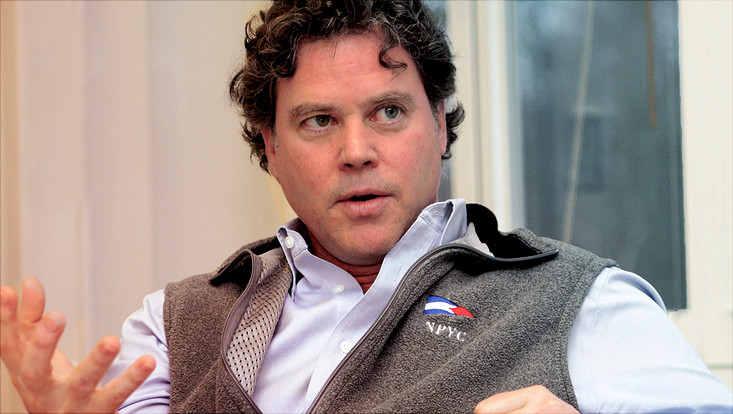Pandora: Hope for Europe’s fish – and fishers
27 February 2018, by Christina Krätzig

Photo: UHH/CEN/C.Krätzig
Fish species living in the open sea, like herring or cod, are particularly important for the European fishing industry. A new research project will pave the way for better forecasting these fish stocks’ future, and assess how sustainable various management strategies are. The 25 project partners include not only universities, but also nonacademic research institutes and trade associations. Prof. Myron Peck, biological oceanographer at the Center for Earth System Research and Sustainability (CEN), will head the project area “stakeholder engagement,” the goal of which is to facilitate collaboration between the scientific community, fishing industry and political decision-makers in the context of promoting sustainable fishing.
Prof. Peck, the new research project is called “Pandora,” which stands for “Paradigm for Novel Dynamic Oceanic Resource Assessments.” But the name also conjures up images of Pandora’s box, which released a host of evils – did you consider this aspect?
There were certainly plenty of discussions when it came time to choose a name. We chose Pandora because the acronym is a good fit – and because it accurately reflects the level of complexity involved in our work. In many parts of the world, the fishing industry has a poor reputation because there is so much overfishing. But the very last thing that came out of Pandora’s box was hope – and that’s something people shouldn’t forget.
What is the project’s most important goal?
We plan to collate the available data on European high-seas fishing and develop computer models that deliver more accurate projections on the development of fish stocks. The models will then be made freely available via an online platform. Our vision for the future is as follows: fishers can enter information on which species they plan to catch, and which quantities, into the model – and receive immediate feedback on whether they’re fishing sustainably or overfishing. The models can also potentially help them consider alternatives, e.g. whether it might be wiser to concentrate on other species for a time.
What do the new models offer that previous models don’t?
Pandora’s computer models will take into account far more parameters. For example: currently, fish species are generally assessed and managed individually. But this ignores important interactions. For instance, cod eat herring, and herring in turn eat cod eggs. As a result, the catch quota set for any given species automatically affects other species. Pandora will provide models that are capable of displaying these interrelationships.
Many fish stocks have actually grown over the past several years and this aspect, too, impacts other species. So you can see that Pandora is being launched at an exciting time: there are now more fish in the ocean again, and we need new methods to effectively manage them.
Is all of the required data already available?
No, we’re still lacking data on some regions. In some cases, we still don’t know enough about the stocks – where the fish swarms are, or their exact makeup. Particularly in the Mediterranean, where many stocks are now struggling, there are major gaps. As such, one of Pandora’s central goals is to improve collaboration between the scientific community and fishing industry; that’s what we here in Hamburg are responsible for.
At the beginning, you mentioned overfishing. Isn’t this problem due to an overly greedy fishing industry – and catch quotas that are much too high? How can a project like Pandora help?
The fishing industry has dramatically – and permanently – changed marine ecosystems. We can’t turn back the clock. But the industry isn’t interested in catching every last fish possible; it understands what’s happened to the stocks. Now science is working for the industry, in that we want to help make fishing more sustainable. So science and the fishing industry aren’t enemies; they need to work hand in hand. In this regard Pandora will offer workshops for fishers, which will also help get valuable data from them. Convincing them of the need to avoid overfishing isn’t always easy, but by the same token, most of them know the current state of the fish stocks better than anyone else.
A further important aspect of Pandora will consist in providing political actors the best possible scientific basis for decision-making. But once we’ve done so, the political machinery will take over from there. And the quotas that result are often just as puzzling to researchers as they are to the fishing industry. But they’re political decisions, after all.
Prof. Myron Peck also coordinates the CERES project, in which researchers are investigating the effects of climate change on aquacultures and the fishing industry.
For more on CERES, visit:


